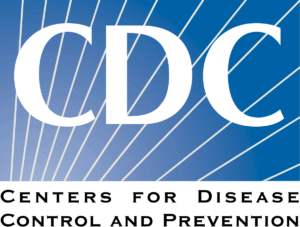New tool for clinicians unveiled to ensure appropriate treatment for congenital syphilis
May 22, 2019
by Rosalyn Plotzker, MD, MPH, Sexually Transmitted Diseases Fellow
and Jennifer Rogers, Communications Specialist
Download the full congenital syphilis algorithm
The California Prevention Training Center (CAPTC) and the California Department of Public Health (CDPH) Sexually Transmitted Diseases Control Branch have developed a Congenital Syphilis (CS) algorithm to illustrate the inherently complex evaluation and treatment of infants who are born to mothers with syphilis during pregnancy.
The algorithm, a one-page graphic flowchart, serves as a short-hand reference for the Centers for Disease Control and Prevention’s (CDC) complex CS treatment guidelines. It was conceptualized by Sexually Transmitted Diseases Fellow Rosalyn Plotzker, MD, MPH, who hoped to create a tool to outline CS evaluation and treatment in the face of a continued CS epidemic in California.
Congenital syphilis can be disabling or potentially life-threatening if not treated appropriately. In 2018, the CDC announced that CS cases have more than doubled nationally between 2013 and 2017, from 362 to 918. California observed an even more dramatic 750 percent increase in CS cases, from 33 in 2012 to 283 in 2017, which represented more than 30 percent of the nation’s CS cases for that year.
Due to comparatively low syphilis rates among females and infants in the late 1990’s through the early 2000’s, many providers are seeing CS cases for the first time in their careers.
A recent CDPH review of CS cases from high-morbidity counties showed approximately 14 percent received suboptimal evaluation or management at the time of delivery. Similarly, 10 percent of clinical inquiries submitted during 2017 to the CAPTC’s STD clinical consultation network sought guidance for the management of an infant with possible syphilis infection.
“Evaluating a baby for congenital syphilis and treating them appropriately can be really complicated, especially for physicians who haven’t done it before,” explained Dr. Plotzker.
This is the first tool of its kind to visually present the comprehensive recommendations put forward in the 2015 CDC STD Treatment Guidelines. Rather than a replacement for the Guidelines, the algorithm offers physicians a starting point to plan the evaluation and treatment of this challenging clinical scenario.
“We hope this resource will help guide the care clinicians provide to infants who might have congenital syphilis and reduce negative downstream consequences of the illness for entire communities,” says Dr. Plotzker.
You can see the algorithm here.
Rosalyn Plotzker, MD, MPH, is the University of California San Francisco Sexually Transmitted Disease Fellow for the California STD/HIV-Prevention Training Center (CAPTC), and the California Department of Public Health (CDPH) STD Control Branch. She received her medical degree from the State University of New York Downstate Medical Center. Rosalyn completed her Preventive Medicine Residency at the Icahn School of Medicine at Mount Sinai Hospital, where she also earned her Masters of Public Health in Health Promotion and Disease Prevention. As a fellow, she provides clinical care at the San Francisco City Clinic. She also contributes to STD prevention education, programming, and research with both the CAPTC and the CPDH.

